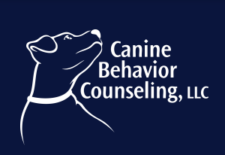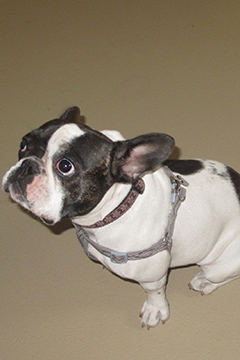
When I think of unwanted behavior, I think of stress as the two are often related.
My goal here is to help you identify your dogs stress signals so you can get them help before this stress causes unwanted behavior. Science clearly states that stress leads to health problems, negatively affect relationships with others and can also make us grumpy, irritable, less tolerant and even aggressive.
Is it true if we humans are stressed our dogs can sense it? Yes, when we feel worried, anxious or angry, our dogs will certainly be effected in some way. Different dogs will react differently to mental and physical pressures in their environment.
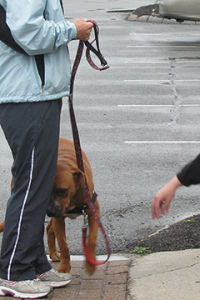
How many of us often turn to physical exercise to relieve stress or tension felt from our environment. Is your dog able to go for a daily jog to relieve the stress he carries around or is he confined to run the fence line and bark in frustration becoming more and more aroused. Does he destructively chew your furniture, pace wildly and mouth your arms and hands when you enter? You may perceive this mouthy greeting as excitement, but it is stress.
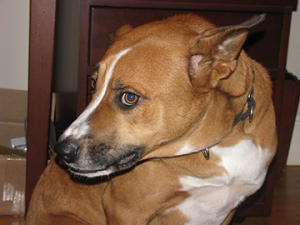
right, this mix is looking away to avoid conflict.
Signs of Stress come in many different forms:
- Does your dog ever bark rapidly, scan the environment for a threat, pace back and forth, tremble, chew in a ripping or destructive manner, pant when not tired, flatten his ears back, lower his head when approached (guilty appearance), cower or urinate when you or anyone else approaches, hide between your feet, growl, lick his lips when not eating, yawn when not tired, turn his nose away from his favorite treat when in an unfamiliar environment. Urinate or defecate when arriving at a new home, or training center.
- Young adolescent pups may playfully mount dogs or humans or do this as a sign of stress as is biting the leash and excessive mouthing of human hands. Exaggerated self grooming which can cause hair loss, sudden outbreak of dander can also be stress related.
- Does your dog often begin to sniff the ground when meeting new dogs, stop to scratch just as a greeting is about to occur, avoids the new dog completely? We know stress can effect health, stress that continues over a period of time can cause a dogs immune system to become fragile due to increased cortisol in the system. Have you ever considered that a dogs unpleasant body odor or bad breath can be the result of high stress.
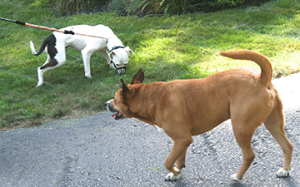
White dog is fearful and sniffs to avoid greeting
Environmental triggers are everywhere, who is present, how many stimuli, if they are approaching slowly or quickly, how your dog feels at that moment, what smells are near, what he sees and hears are all triggers that can cause your dog stress and they are constantly effecting your dogs behavior.
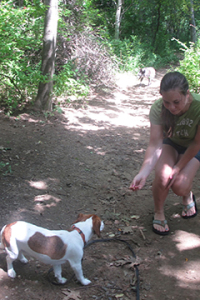
weight shifted?
Knowing the signs of stress in your dog is essential to keep him safe, happy and healthy.
For more information consider reading Stress in Dogs by Marina Scholz and Clarissa Von Reinhardt, well worth the time to read.
